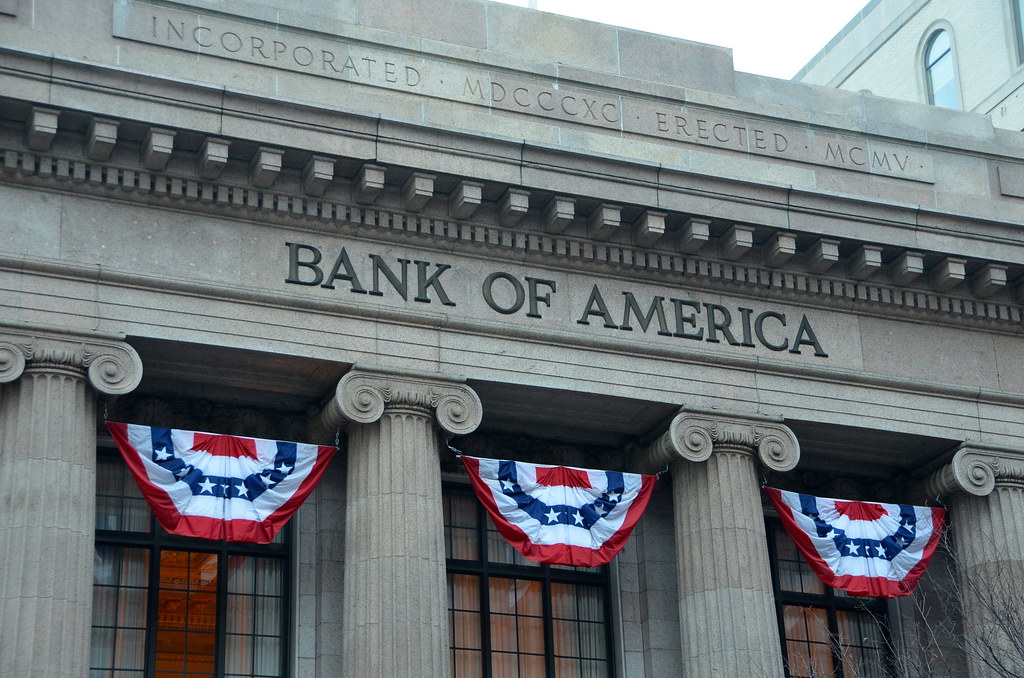Bank of America refuses service to a Christian charity serving Ugandan orphans—in a trend of de-banking people for religious or political views.
By Eileen Griffin
A Christian non-profit group filed a consumer complaint after Bank of America (BOA) canceled their account.
Indigenous Advance Ministries, a Christian organization serving Ugandan orphans, has been denied banking services, Daily Mail reports. A complaint has been filed with the state of Tennessee alleging discrimination based on religious views.
Bank of America denies religion had anything to do with the decision to close the account. The letter from the bank to Indigenous stated, “Upon review of your accounts, we have determined you’re operating in a business type we have chosen not to service at Bank of America.”
Associated Indigenous accounts and those of a church affiliated with Indigenous were also closed by BOA. After repeated requests, the only further explanation given was that the group did not fit the risk profile of the bank. Attorneys for the Alliance Defending Freedom (ADF) are assisting with the complaint filing, ADF announced in a press release.
ADF Senior Counsel and Senior Vice President for Corporate Engagement Jeremy Tedesco said Americans should not lose banking services for their faith.
“No American should have to worry that a financial institution will deny them service based on their religious beliefs, but Bank of America appears to have done just that with Indigenous Advance,” Tedesco said. “Canceling their account hurts those in need. It also sends a disturbing message to everyone you can have your beliefs or your bank account, but you can’t have both.”
Other religiously affiliated organizations have had their accounts closed, Heartland Daily News previously reported.
In May, 19 Republican state attorneys general claimed J.P. Morgan Chase & Co. regularly de-banked Christian and conservative groups, The Daily Wire reported.
The National Committee for Religious Freedom, a faith-based non-profit, found itself without a bank just three weeks after opening an account at Chase. They were also asked to disclose the names of their donors.
Family Council, a conservative group supporting family values, was denied credit card processing through a Chase-owned vendor.
The letter from the attorneys general asked the bank to treat people fairly, regardless of religious or political beliefs.
The exclusion of the faithful has existed in many corners of society for many years. Most recently, corporate pursuit of a woke agenda is excluding people holding traditional values and beliefs. Denying financial service is a terrifying extension of this trend, reports Christianity Today.
“With regards to high street banks, we are already faced with a situation where a thousand accounts a day are reportedly being closed,” Linda Rose writes. “This means, in translation, that every day 1,000 people are being denied their legitimate place in society—because, cut off from access to their funds (unless an alternative can quickly be found), they won’t be able to pay bills, or buy the necessities for life.”
Nigel Farage, former leader of the Independence Party in Great Britain and leader of the Brexit movement, claimed he was de-banked for his conservative views, The Wall Street Journal reported.
Farage proved his case with the release of “a copy of a 40-page record of the bank’s internal discussions about his accounts” which cited his opinions on issues such as climate change and race as reasons to de-bank him.
“This is a cautionary tale for Americans about what happens when good banks go woke,” wrote the WSJ Editorial Board. “This danger will grow as politicians lean more heavily on banks to implement their policies Would a bank maintain accounts for a critic of net-zero climate policies if the bank is under pressure from Washington to advance the climate agenda?”
“The financial system has been leveraged by public and private actors to oppose certain political perspectives, including those often held by conservatives,” wrote Ben Zeisloft for The Daily Wire.
“Effectively then, denying individuals access to banks holds the potential of making them a ‘non-person’, unable any longer to function in society,” Rose wrote. “What better way to ensure compliance with a programme of societal reconfiguration than cutting someone off from their means to live?”
